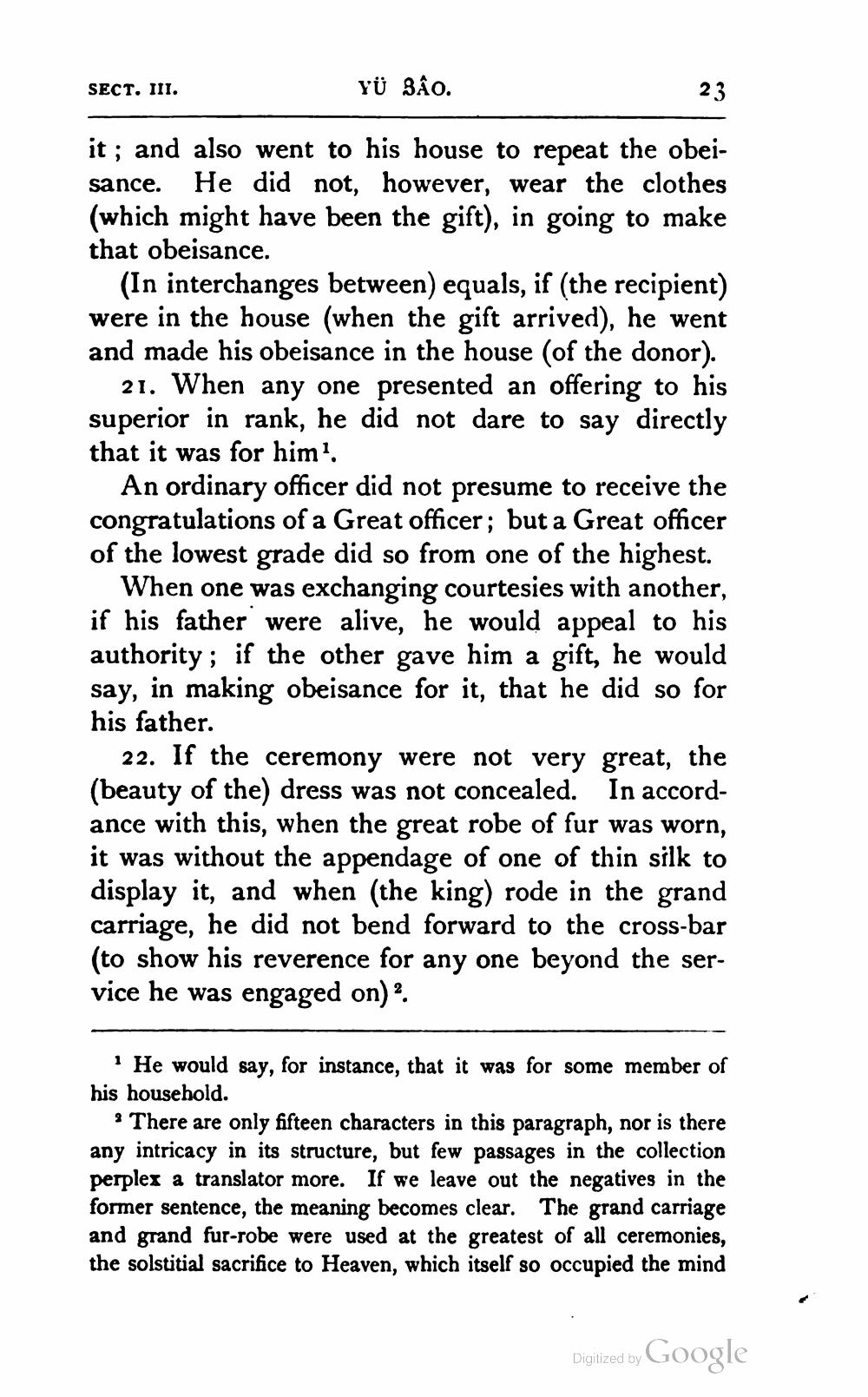________________
sect. III.
YÜ SÃO.
23
it ; and also went to his house to repeat the obeisance. He did not, however, wear the clothes (which might have been the gift), in going to make that obeisance.
(In interchanges between) equals, if (the recipient) were in the house (when the gift arrived), he went and made his obeisance in the house (of the donor).
21. When any one presented an offering to his superior in rank, he did not dare to say directly that it was for him?.
An ordinary officer did not presume to receive the congratulations of a Great officer; but a Great officer of the lowest grade did so from one of the highest.
When one was exchanging courtesies with another, if his father were alive, he would appeal to his authority; if the other gave him a gift, he would say, in making obeisance for it, that he did so for his father.
22. If the ceremony were not very great, the (beauty of the) dress was not concealed. In accordance with this, when the great robe of fur was worn, it was without the appendage of one of thin silk to display it, and when the king) rode in the grand carriage, he did not bend forward to the cross-bar (to show his reverence for any one beyond the service he was engaged on) 2.
He would say, for instance, that it was for some member of his household.
* There are only fifteen characters in this paragraph, nor is there any intricacy in its structure, but few passages in the collection perplex a translator more. If we leave out the negatives in the former sentence, the meaning becomes clear. The grand carriage and grand fur-robe were used at the greatest of all ceremonies, the solstitial sacrifice to Heaven, which itself so occupied the mind
Digitized by Google




